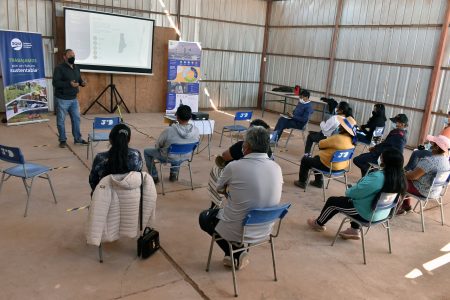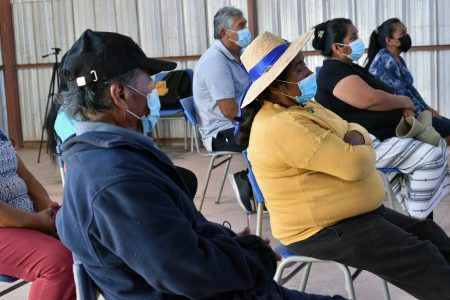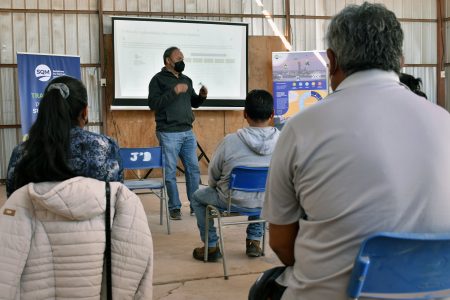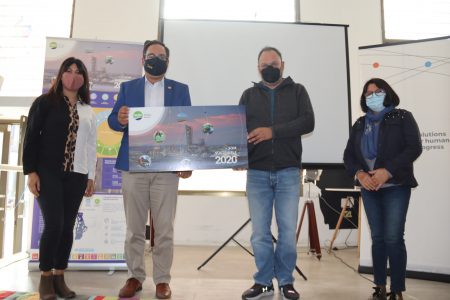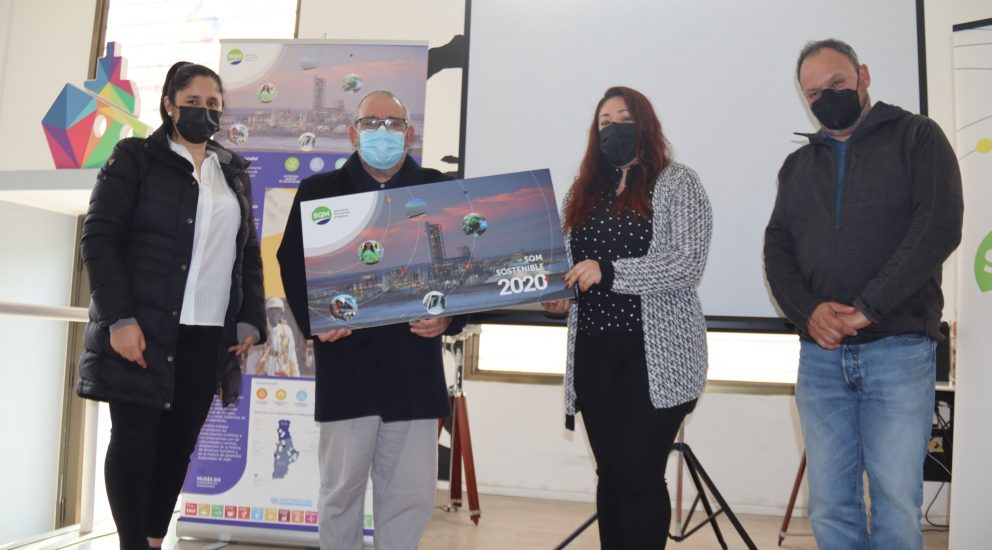
SQM Presented 2020 Sustainability Report at Community Dialog Event
09/Aug/2021
The space for conversation brought together community and public-sector players from towns close to the company’s operations, where a robust action plan is being deployed to generate social value.
Social, neighborhood and educational leaders, community representatives and multiple local authorities from the Tarapacá and Antofagasta regions joined the gathering organized around SQM’s 2020 Sustainability Report, an exercise in transparency that communicates the company’s main indicators and comprehensive, unwavering commitment to sustainability and the creation of shared social value.
Pablo Pisani, Director of Communications, Sustainability and Public Affairs at SQM, highlighted the contribution made by these dialog sessions with towns near the company’s operations, one of the intended recipients of this report. The robust report is an exercise in transparency that conveys the organization’s economic, environmental and social performance.
“We have participated in multiple conversations with neighbors, local leaders, opinion leaders, authorities and beneficiaries of SQM’s programs, relaying our achievements in 2020, which are detailed in our Sustainability Report. We are very happy because they have been very interesting and fruitful conversations. From them, we have gathered valuable feedback that helps us continue to engage with the community, rolling out our shared social value programs based on the communities’ needs and challenges,” the executive asserted.
Outreach
This community dialog took place in towns near SQM’s operations such as María Elena, Tocopilla and Quillagua in the Antofagasta Region. The tour also included the Pintados Agricultural Colony in the Tarapacá Region, where groups like the Juventud Indígena del Desierto Association and the Tierra de Jehová Multi-ethnic Indigenous Association participated. With these organizations, we are developing farming projects with a focus on efficiently using water and incorporating renewable energies.
Ana Esteban Gómez, the secretary of the Juventud Indígena del Desierto Association, commented: “We would like to express how meaningful SQM’s commitment and agreements with farmers are to us. They identified our needs and believed we were capable of listening to the great work they do with our neighbors and in other towns. For this, we are very grateful.”
The district of Tocopilla in the Antofagasta Region was another stop on the tour and is home to several company programs in different areas. According to councilman Luis Alberto Klaus, “I found this opportunity really great because I think that all companies and, in this case, SQM, can use it to transparently show how in some way or another they invest in quality of life in communities like ours. This public-private link is important, particularly one involving the municipality, where ideas, initiatives and projects benefiting the community come to life.”
Meanwhile, Roberto Bórquez, the academic director of the Sagrada Familia School in Tocopilla, emphasized: “SQM’s contact with the communities seems fundamental to me since it helps us learn more about the company’s main activities and focal points in Tocopilla. It is nice to be able to hear about all the efforts, dedication and resources they are investing to engage with communities.”
Raúl Puebla, a councilman for María Elena, also participated in the event, which he rated positively, adding: “For us as local residents, it is great to learn about SQM’s contribution to sustainable development in our community. It is very important to have these spaces to talk with the company and voice our concerns as a community and it is very valuable so the company can learn from them and eventually develop them into projects.”
SQM has a close relationship with more than 20 communities near its operations in the regions of Tarapacá and Antofagasta, where it backs several projects under four lines of action: Education and Culture, Social Development, Historical Heritage and Healthy Living. This bond is built on the basis of transparency, respect, trust and direct involvement.
